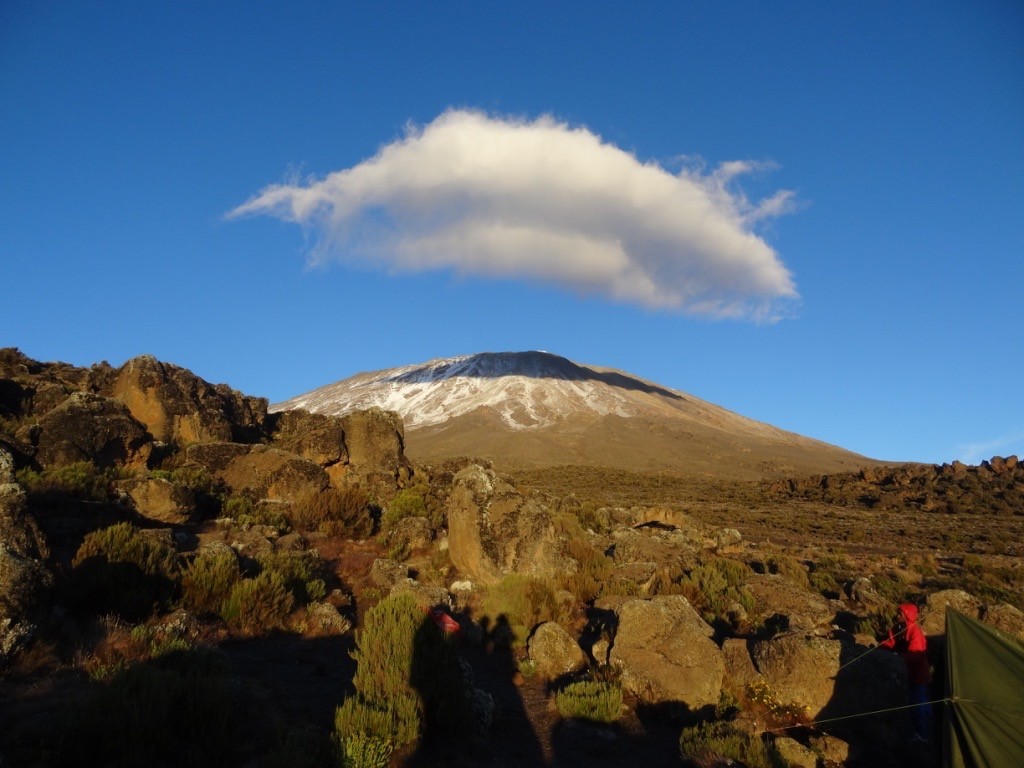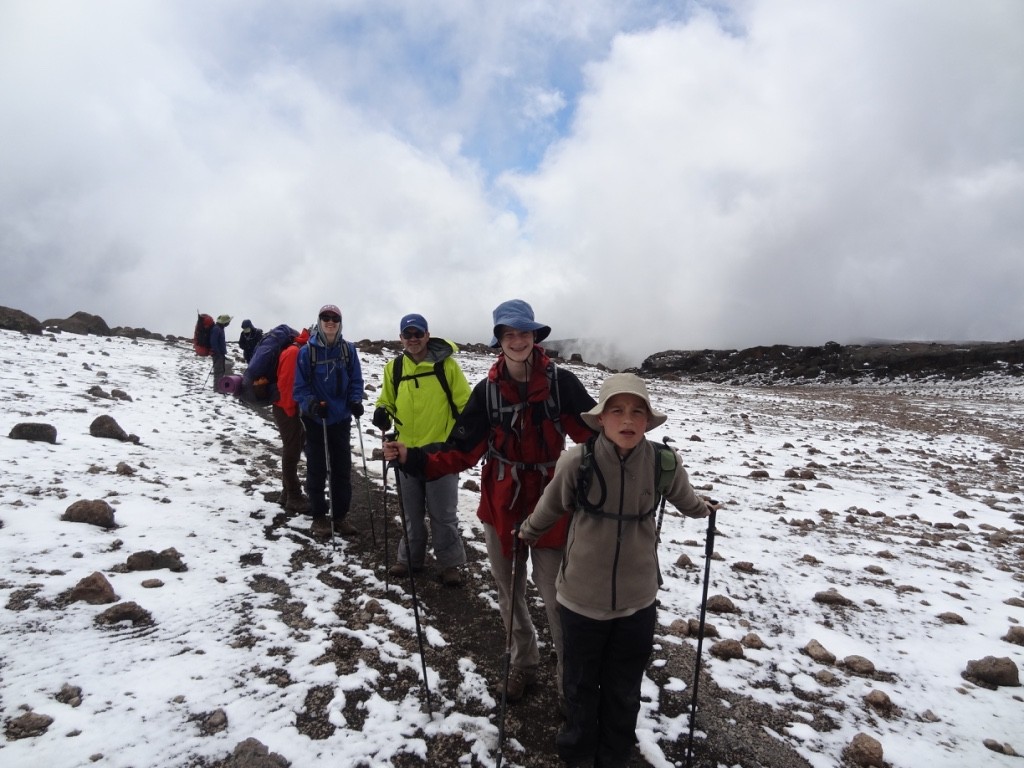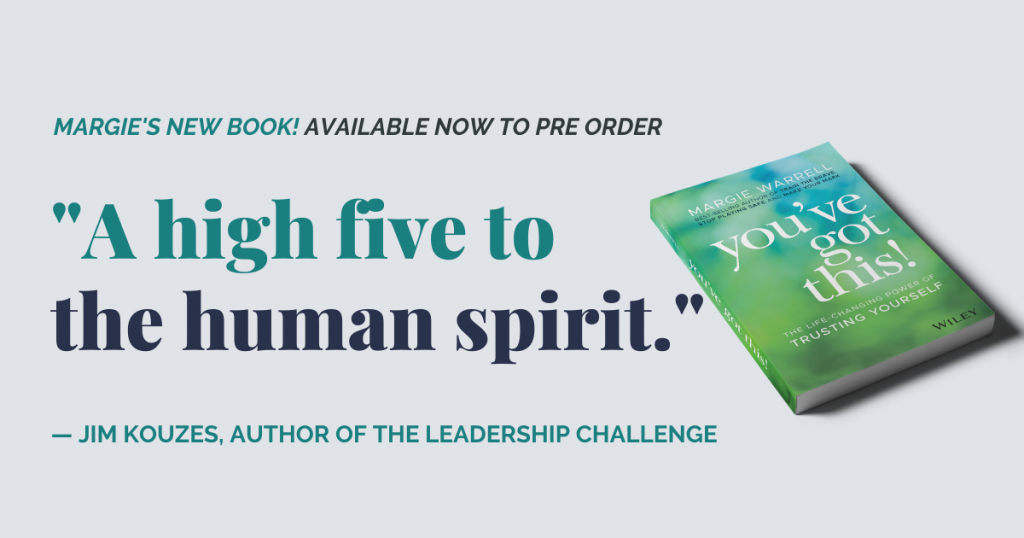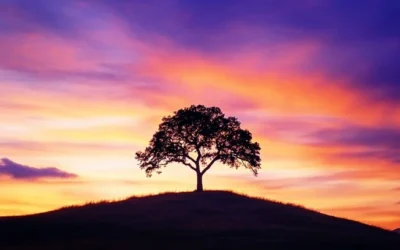Grit.
The dictionary provides two definitions:
- Small loose particles of stone or sand.
- Courage and resolve, strength of character.
Given how much our ‘courage and resolve’ is being tested right now, it’s fair to ask how we can cultivate more grit when every day feels like an uphill climb.
Ironically enough, my answer to ‘How to grow grit?’ was shaped by summiting a mountain that was covered with it.

In fact, this 4th of July weekend marks four years since I summited Kilimanjaro with my husband and our four children (aged 13-18 at the time). Given that many people are needing to dig deep and grow grit as they rise to the challenges of this time, I thought it was a good time to reflect on how those lessons might help you find the courage to stay positive, press on and ‘just take the next step.’
At the time we embarked on this endeavor, we lived at sea level in an area devoid of hills, much less altitude. So you might say our training was basic at best, inadequate at worst.
While my husband Andrew and I had hiked at altitude before (Inca trail level hard, not Everest hard), our children hadn’t. They had got on board with the idea simply because they thought it sounded like a cool way to mark their dad’s 50th. They had no real sense of how altitude can impact the body. In hindsight, this was probably a good thing, or they’d have vetoed the idea and voted for a beach vacation instead.

Our longer four-day route to base camp (sitting at 4,730m/15,520 ft elevation) helped our bodies acclimatize but did little to mentally prepare us for the gruelling climb that awaited on ‘Summit Day.’
We set off in the early hours in sub-zero temperatures. Within thirty minutes my youngest was crying because his fingers were so cold. Within another thirty, my fourteen-year-old was throwing up his oatmeal breakfast. The higher we climbed into the frigid African sky, the slower our steps became and the more frequent our breaks. Six hours in, the sun had defrosted our fingers (sort of), but the summit seemed even further away. My head throbbing and my stomach squelching, it was my turn to empty my stomach of the very little I’d eaten. Soon after, my daughter Maddy was tearily wondering if she could go on. Lachlan, our oldest, extended his hand to pull her up, ‘You can do it Maddy, I know you can. Just take the next step.’
‘Pole, pole’, our wonderful guides continually said to us, Swahili for slowly, slowly. So on we pressed, one slow step after another, the soft shale grit falling away under our boots. Then a break. Then more slow steps. Another break. As we slowly zig-zagged back and forth, there were several times I felt like giving up too. Yet I was determined not to be the one who let the team down. We were all determined. So on we pressed, pole pole.
Nine gruelling hours after setting off, we eventually stepped foot on Gilman’s Point, 5,685meters (18,885 feet), into the African sky.
What did we learn from that experience that may be relevant to you right now, in the midst of your challenges
You can do hard things!
We often underestimate our abilities and are, for the most part, capable of far more than what we’ve told ourselves is possible for us. Only by having the courage to pursue goals that exceed what we have done before can we ever discover how much we can actually do – individually and collectively. Likewise, in the face of challenges you would not have chosen (such as those this pandemic may have brought your way), you have a greater capacity to overcome them than you may have previously thought. Trusting in that capacity is the first step to tapping it.
Growth and comfort can’t coexist. Just because something is hard and uncomfortable doesn’t mean its bad. Embrace the discomfort; look for the growth.
As I shared in this short clip from a keynote speech last year, only when we dare to test our limits can we discover them. This requires the courage to exit our comfort zone and do the very things that stretch us, even if they scare us and require going the extra hard yards.
We are stronger together than we ever are alone
The power of human connection is a force multiplier, enabling us to rise stronger and go further together than we ever can alone. The power of the group, the team, to rise above challenges and reach new heights is far more than the sum of its individual parts.
Emotional contagion is a powerful force when its harnessed to encourage, embolden and elevate those around us. So however tough you are doing it, reach out to those around you – enlist their support toward, extend a helping hand or offer an encouraging word.
‘It is not the mountain that we conquer, but ourselves.’ – Sir Edmund Hillary
It won’t stay this difficult forever
The third and final lesson – however tough the going is right now, it won’t stay this way forever. So if the light at the end of the tunnel seems to be flickering smaller and further away, or you’ve lost hope it will ever reappear, just take one more step.
It doesn’t matter if that step is the smallest you’ve ever taken. It doesn’t matter if it’s the slowest. It doesn’t matter if you have to stop often to regain your footing and recharge your energy. All that matters is that you are putting one foot in front of the other, moving in the direction you want to travel.
In the midst of this testing time, many people are doing it tough and struggling to keep faith in brighter days ahead. If you are one of them, I encourage you to just keep putting one foot in front of the other, trusting that the human spirit is greater than anything it can face. One day at a time, one hour at a time, one step at a time.
Yours is no exception.







